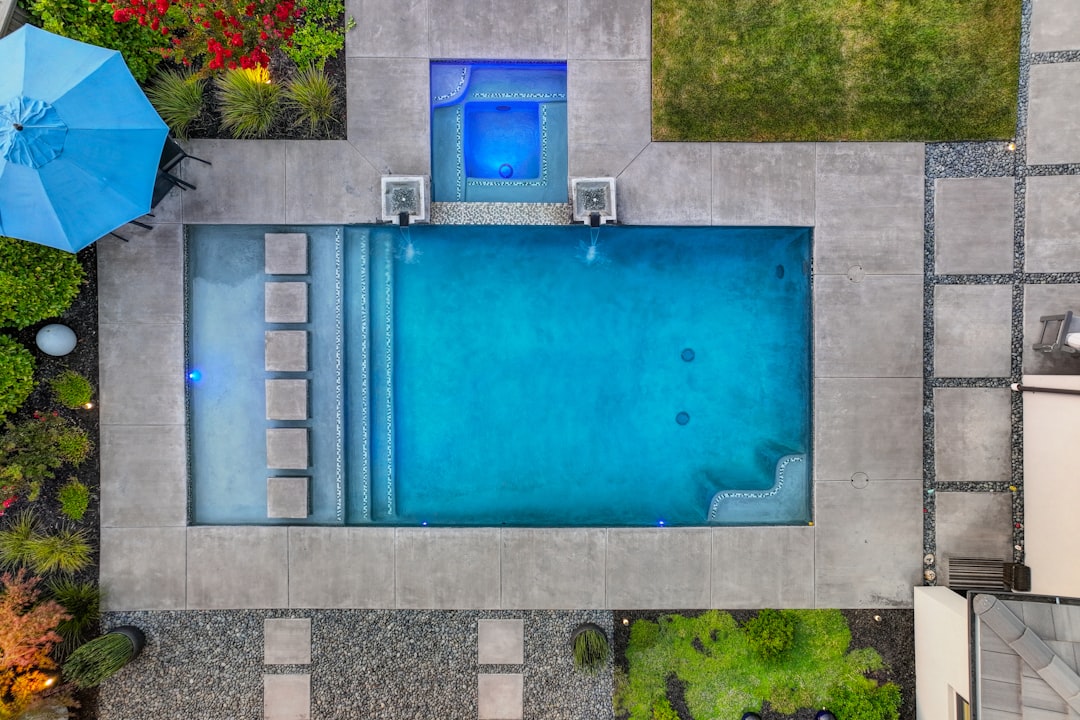Resurfacing a Pool Cost Guide for Construction Professionals
Price source: Costs shown are derived from our proprietary U.S. construction cost database (updated continuously from contractor/bid/pricing inputs and normalization rules).
Eva Steinmetzer-Shaw
Head of Marketing
Introduction: Understanding Resurfacing a Pool Cost
For construction professionals, accurately estimating the cost of resurfacing a pool is crucial. Factors such as material selection, pool dimensions, and regional labor rates significantly impact the final cost. On average, resurfacing costs range from $6,000–$15,000, depending on these variables. This guide provides a comprehensive breakdown to help you navigate these complexities with confidence.
Key Factors That Influence Resurfacing Cost
- Surface material (plaster, quartz, pebble, glass bead, or eco-finish)
- Pool dimensions and shape complexity
- Substrate repair or crack remediation required before the new finish
- Access to the backyard for demolition and material staging
- Local permitting and inspection fees
- Regional labor demand and seasonal premiums
- Water refill, chemical rebalancing, and startup service
Utilize tools like CountBricks to compare these factors side-by-side, ensuring precise cost management.
Average Price Ranges in Today’s Market
Current market prices for resurfacing materials are as follows:
- White plaster: $4–$7 per square foot
- Quartz aggregate: $6–$8 per square foot
- Pebble finish: $7–$10 per square foot
- Glass bead or premium aggregate: $9–$15 per square foot
For a typical 400-square-foot pool, this translates to $1,600–$5,600 for materials alone. Labor and additional services can increase total costs by 40-60%, placing most projects in the $6,000–$15,000 range.
Step-by-Step Cost Breakdown
- Blueprint Upload or Voice Measurement: Convert pool dimensions into precise square footage.
- Surface Removal & Substrate Inspection: Include demolition and potential repair costs.
- Material Selection: Adjust finishes and thicknesses to see real-time cost updates.
- Mobilization & Site Access: Consider equipment needs based on site conditions.
- Refill & Chemical Startup: Estimate water and chemical costs for a complete budget.
Hidden Costs Professionals Often Miss
- Drain line repair discovered during demolition
- Upgrading outdated pool lights to LED to meet code
- Replacing worn skimmer throats or main drain covers
- Landscaping restoration due to equipment traffic
Being aware of these potential extras ensures no surprise costs during construction.
Ways to Save Without Sacrificing Quality
- Bundle decking or coping upgrades with resurfacing to share mobilization costs
- Schedule work during off-peak months to reduce labor costs
- Select mid-grade quartz for a polished look at a moderate price
- Use scenario modeling tools to compare finish options before finalizing contracts
Financing and Scheduling Options
Explore financing options and schedule projects efficiently using integrated tools. Pre-qualify for financing quickly and lock in project dates with ease.
Conclusion
Understanding the costs associated with pool resurfacing is essential for construction professionals. By leveraging accurate estimates and strategic planning, you can manage projects effectively and deliver quality results. For more information, visit CountBricks.
Case Study: The Wilson Family Pool Transformation
The Wilson family in Dallas needed a cost-effective solution for their aging pool. By using advanced estimating tools, they achieved a successful renovation within their $11,000 budget.
AI Estimate in Minutes
- Measured 448 square feet of surface area
- Priced quartz aggregate at $6.00 per square foot
- Total estimate: $11,000, within budget
Dynamic Scope Adjustments
Real-time cost adjustments helped the Wilsons make informed decisions, avoiding unnecessary expenses.
Scheduling & Financing
By selecting an off-peak schedule, they saved on labor costs. Financing options allowed for flexible payment plans.
On-Site Execution
Efficient planning and execution led to a successful project completion, enhancing the home's value.
Conclusion
For construction professionals, leveraging technology and strategic planning can lead to successful pool resurfacing projects. Explore more at CountBricks.

